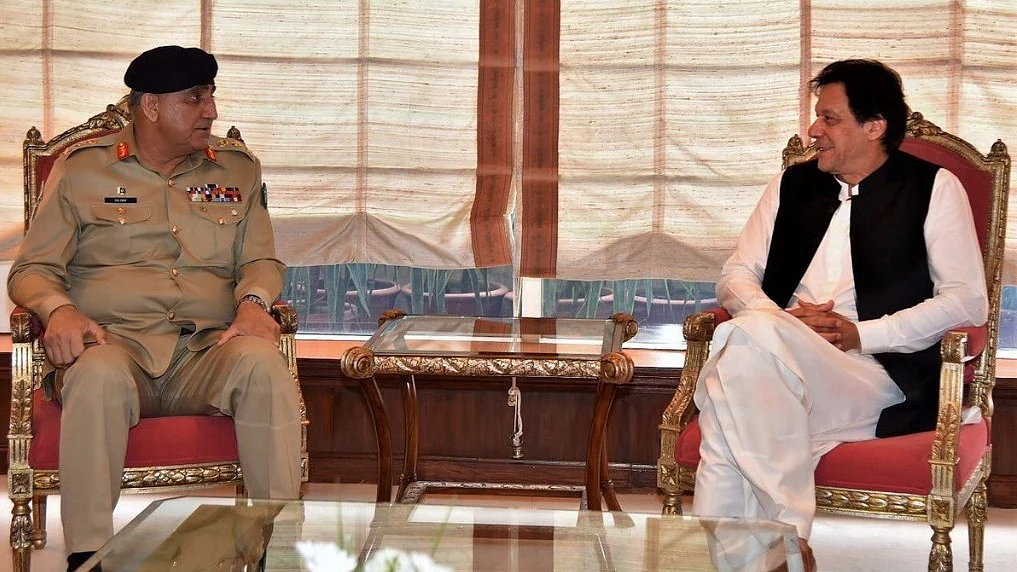‘Naya Pakistan’ stumbles on minority rights
Pakistani academics, media, expatriates and liberal sections protest in one voice the discriminatory dismissal of a brilliant economist because he belongs to a minority community

Four years ago, in 2014, Imran Khan was addressing a large and delirious crowd of supporters and spoke eloquently on the need for making public appointments on merit. He was in the opposition then and his speech was acerbic.
The Nawaz Sharif government was busy appointing cronies and relatives to key positions and that was not the way to govern. If he himself became the Prime Minister one day, who would he appoint as the minister of finance, he asked the crowd. It would not be his ‘Samdhi’, he had replied to himself with a smirk.
Obviously it would have to be someone like Dr Atif Mian, a globally acclaimed Pakistan-born economist at Princeton. When Imran Khan finally took over as Prime Minister last month, he did name the economist, not as the FM but as one of the 18 members of his Economic Advisory Council.
But even before the EAC could meet for the first time, the economist resigned and explained on Twitter that he was doing so for the stability of the government of Pakistan.
Acknowledging that the government of Imran Khan was under pressure over his appointment, the economist quit. The pressure was exerted by Mullahs and Muslim clerics who typically objected to the economist’s ‘minority status’.
In protest, two other economists nominated to the council, Dr Asim Ijaz Khwaja, Professor of Public Policy at the Kennedy School of Government at Harvard University, and Dr Imran Rasul, Professor of Economics at University College, London, also quit. He profoundly disagreed with the circumstances in which Dr Atif was asked to resign, said Dr Rasul in a statement.
All three internationally acclaimed economists of Pakistani origin offered, however, to serve their country in any other capacity. The resignations have had the unexpected consequence of rallying people, academics and politicians in criticising the government. PPP leader Shehla Raza, one of whose tweets had condemned the nomination of Atif Mian, was forced to delete the tweet, tender a public apology and sack her social media team.
Dr Atif Mian belonged to the ‘Ahmadiya’ sect and was not welcome even as a member of the 18-member council comprising seven members from the government and eight corporate and industrial representatives from Pakistan’s private sector
There have been protests in Pakistan and outside with people reminding Imran Khan that the founder of Pakistan, MA Jinnah, wanted Pakistan to be a land for everyone, including minorities. Imran Khan’s first wife Jemima Khan tweeted that Jinnah had appointed a member of the minority, an Ahmadi, as his foreign minister.
Indeed Jinnah had appointed a Hindu ‘Dalit’ Jogendra Nath Mandal as Pakistan’s first Law and Labour Minister. The opposition to Atif Mian appears to stem from his public stand against blasphemy laws in Pakistan and his emphasis on modernising the state.
He had advocated a more inclusive, free and open state and society so as to invite talent from abroad. Ironically, the day the government sacked the Princeton Professor from the EAC, he went on air with an appeal to Pakistani expatriates to donate generously for reconstruction of a dam.
The appeal had a vicious backlash on social media where people trolled Khan as ‘Faqir-e-Azam’ promoting ‘bheekonomics’. In a joint statement over 90 economists, including Indian economists like Pranab Bardhan, Kaushik Basu and Abhijit Banerjee, voiced their anguish at the sacking of Dr Atif Mian.
Follow us on: Facebook, Twitter, Google News, Instagram
Join our official telegram channel (@nationalherald) and stay updated with the latest headlines